Forward thinkers face the future in Lucerne
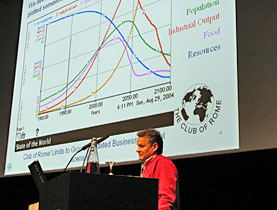
Apparently, we're in the age of stupidity. How we get out of it remains to be seen.
Experts from a variety of fields addressed the issue at the fifth annual European Futurists Conference Lucerne (EFCL) on Thursday and Friday. Altogether, about 130 people from 17 nations took part.
Though futurists don’t necessarily try to predict the future, they do enjoy contemplating and discussing it. Even if they wanted to make predictions, it would be tricky – especially considering the human factor.
“Swiss consumers are getting unpredictable. A person might buy something really cheap one day, and something very exclusive and expensive the next,” said Nicole Brändle, a senior economist at Credit Suisse.
The focus of her presentation was the effect of megatrends on small and medium-sized enterprises (SMEs) in Switzerland.
Megatrends
By megatrends she’s referring to concepts like globalisation, demographics, scarcity of resources and technological progress. Earlier this year, Brändle co-authored a study on the topic. She and her colleagues were both surprised and pleased by the results.
“The attitude of Swiss SMEs is still very positive. They see these megatrends as opportunities mostly, despite the recession,” said Brändle.
Technology was a hot topic at the conference, even coming under fire at times.
“Most technology fails us – it doesn’t necessarily help us. I’m worried if we’re going to base our future on technology,” said one presenter. It sounds like something a Luddite would utter, but the speaker was Clive van Heerden, senior creative director of Philips Design.
As van Heerden observed, consumers tend to be obsessed with intelligence when shopping for digital equipment.
“Frozen chicken”
“The average mobile phone is probably sophisticated enough to get you to Venus, but it has the sensitivity of a frozen chicken,” said van Heerden. In recent years, Philips has been experimenting with more emotional concepts, like a dress with sensors to reveal the mood of its wearer.
Stuart Walker also mentioned mobile phones in his presentation, noting that 400 million of them are discarded each year, creating huge amounts of waste. Professor Walker is co-director of ImaginationLancaster, a new research lab at Lancaster University in Britain.
“We shop and we shop and we shop,” he said, describing how consumer culture clashes with sustainability.
In contrast, Walker’s lab designs products that can evolve to accommodate change; for example, a basic phone whose parts can easily be updated and upgraded using local labour and locally-produced materials.
Green growth
Sustainability was a recurring theme throughout the conference, with a special focus on green growth. Markku Wilenius, senior vice president at Allianz, SA, took a look at the world in 2050, and what needs to be done to get there.
He pointed out increases in population, emissions, and temperature coupled with decreases in food, water and ecosystems – saying that businesses need to act now to cope with those realities.
“Business as usual will be harder in the coming years. The good news is, more companies are beginning to realise that,” said Wilenius.
Another key conference topic was renewable energy.
“It’s irresponsible to promote and sell nuclear plants. I can’t understand it,” said Uwe Möller, co-initiator of the DESERTEC Foundation. According to Möller, solar-thermal technology could completely cover the energy needs of mankind.
What’s more, it would only require 1.7 per cent of the world’s desert surface area. Meanwhile, the recently-outlined DESERTEC Concept states that the Sahara could provide a sustainable supply of electricity for Europe, the Middle East and North Africa by the year 2050.
“It’s in Europe’s best interest to help these Saharan countries develop,” added Möller.
Each year, the Lucerne conference recognises corporate foresight in SMEs. EFCL Director Georges T. Roos presented four companies with the Future Readiness Award.
This year’s winners included Axpo, maxon motor, PIXY and Vosch Electronic.
Susan Vogel-Misicka, swissinfo.ch
EFCL
The European Futurists Conference Lucerne aims to be the most important annual gathering of futurists, analysts and decision makers with long-term perspectives working with scientific methods of futures studies in Europe.
It is dedicated to the professional needs of futurists and to the needs of long-term decision makers and analysts in business, politics and society in Europe.

In compliance with the JTI standards
More: SWI swissinfo.ch certified by the Journalism Trust Initiative
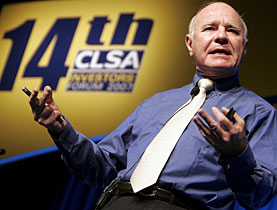
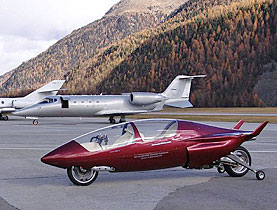
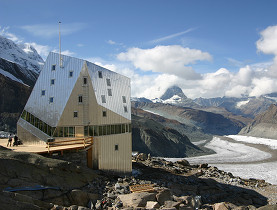

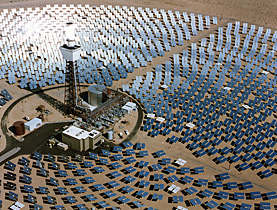

You can find an overview of ongoing debates with our journalists here . Please join us!
If you want to start a conversation about a topic raised in this article or want to report factual errors, email us at english@swissinfo.ch.